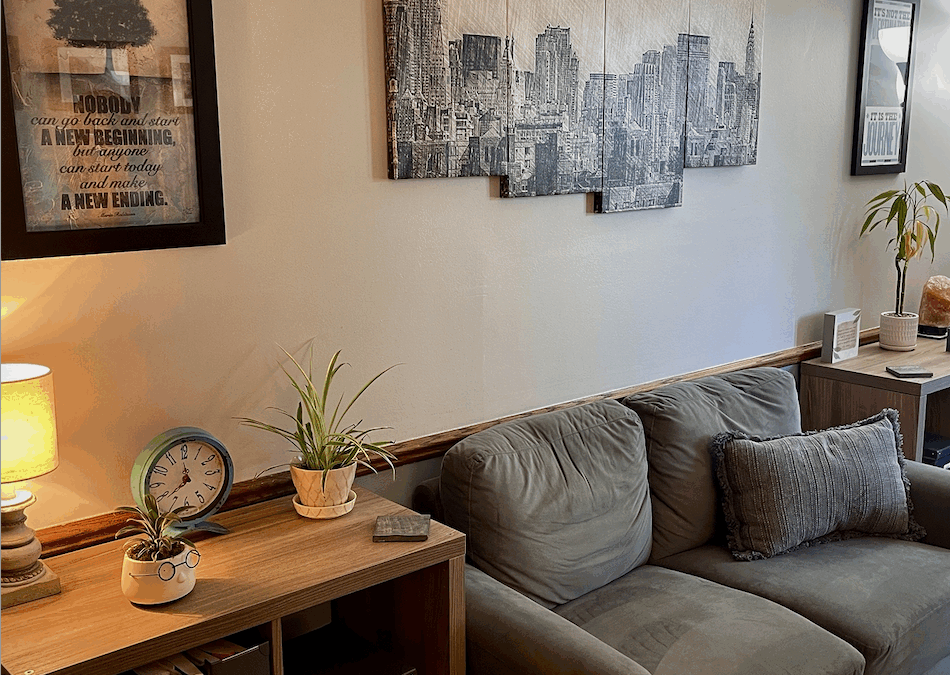What’s Therapy Really Like?
A Real Talk Guide for Anyone Who’s Curious
Let’s be honest, therapy can sound nerve-racking at first, especially if you’ve never been before. Maybe you picture yourself lying on a couch while someone silently takes notes, or maybe you’ve wondered “Do I really need therapy?”
Here’s the truth: therapy is for everyone. It’s a powerful tool for understanding yourself, managing stress, and improving your wellbeing, no matter what you’re going through.
This blog is a down to earth guide to what therapy is, how it can help, and why it might be worth checking out.
So… What Is Therapy, Really?
At its core, therapy (also called counseling or psychotherapy) is a safe, nonjudgmental space to talk to someone that is trained to listen and help. A therapist can support you in working through thoughts, emotions, patterns, and challenges, whether big or small.
It’s not about being “fixed” or told what to do. It’s about learning more about yourself, making sense of things, and finding new ways to cope and grow.
Why People Go to Therapy
You don’t need to be in crisis to benefit from therapy. People go for all sorts of reasons, including:
- Stress from work, relationships, or life transitions
- Anxiety or feeling overwhelmed
- Depression or low energy
- Identity questions or self-doubt
- Grief or loss
- Trauma or difficult past experiences
- Wanting to better understand yourself
- A desire for personal growth or change
If any of these resonate with you, therapy might be a supportive space to explore them.
What Happens in a Therapy Session?
Every therapist works a little differently, but here’s what you can usually expect:
- You talk, they listen. You get to share whatever’s on your mind—there are no “wrong” topics.
- They ask questions. Not to interrogate, but to better understand you and what you need.
- It’s confidential. What you say typically stays between you and your therapist (with some exceptions for safety).
- You learn tools. Therapists can help you develop skills to manage stress, build healthier relationships, and feel more in control.
Is It Like Talking to a Friend?
In some ways, yes—it’s someone who listens, cares, and supports you.
In other ways, no—unlike a friend, a therapist won’t share personal stories, offer unsolicited advice, or tell others what you’ve said. Their focus is entirely on you and your well being.
What About Privacy?
Privacy is a key part of therapy. In most places, what you share is confidential unless:
- You’re at risk of seriously harming yourself or someone else
- There’s abuse or neglect involved
Your therapist will explain their confidentiality policy upfront so you can feel informed and safe from the start.
How to Find the Right Therapist
Finding a therapist you feel comfortable with is important—and it’s normal if it takes a couple tries. You deserve someone who makes you feel seen, supported, and respected.
Consider looking for a therapist who:
- Specializes in your concerns or life stage
- Shares or respects your background or identity
- Feels like a good personality fit
Therapy is most effective when you feel like you can be yourself in the room.
Therapy Isn’t Weak, It’s Brave
Life can be challenging, and there’s no shame in seeking help. In fact, it’s a sign of strength. Going to therapy means you’re showing up for yourself, your mental health, your relationships, and your future. And that? That’s something to be proud of.
Still Curious?
If you have questions or are wondering what therapy might look like for you, reach out to a trusted provider, do some research, or talk with someone who’s been. Therapy isn’t one size fits all, but for many, it becomes a meaningful part of their journey toward growth and healing.

